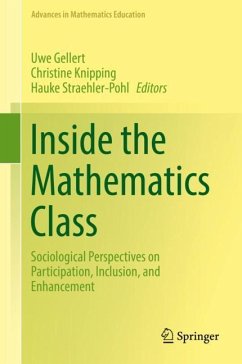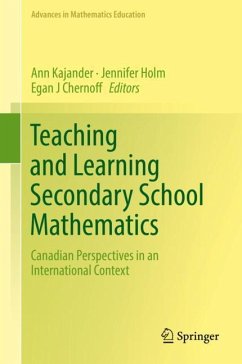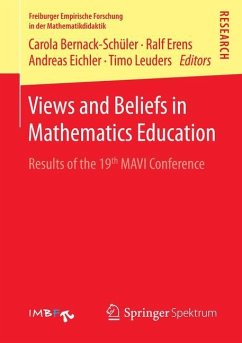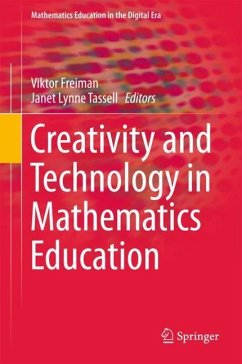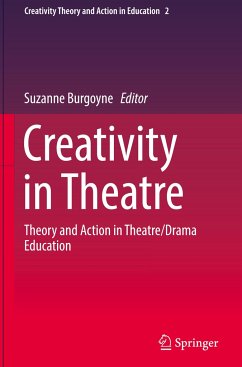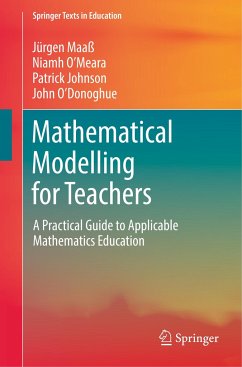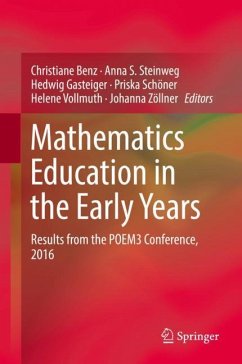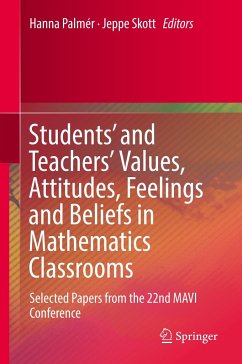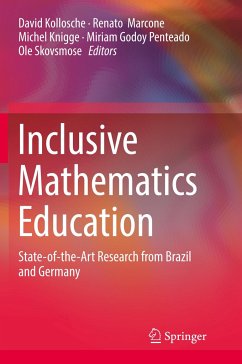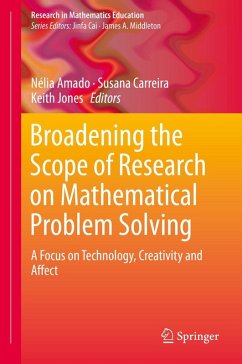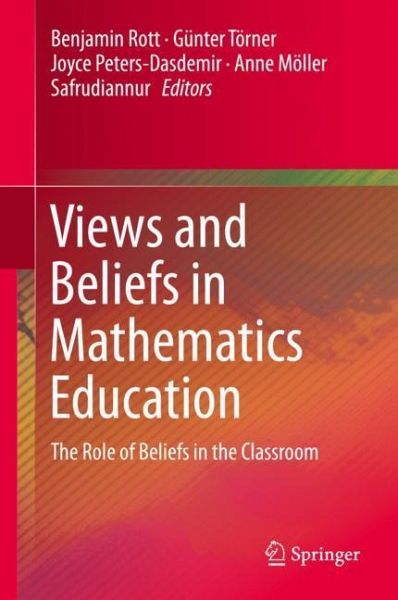
Views and Beliefs in Mathematics Education
The Role of Beliefs in the Classroom
Herausgegeben: Rott, Benjamin; Törner, Günter; Peters-Dasdemir, Joyce; Möller, Anne; Safrudiannur

PAYBACK Punkte
61 °P sammeln!
The book is made up of 21 chapters from 25 presentations at the 23rd MAVI conference in Essen, which featured Alan Schoenfeld as keynote speaker. Of major interest to MAVI participants is the relationship between teachers' professed beliefs and classroom practice. The first section is dedicated to classroom practices and beliefs regarding those practices, taking a look at prospective or practicing teachers' views of different practices such as decision-making, the roles of explanations, problem-solving, patterning, and the use of play. The focus of the second section in this book deals with te...
The book is made up of 21 chapters from 25 presentations at the 23rd MAVI conference in Essen, which featured Alan Schoenfeld as keynote speaker. Of major interest to MAVI participants is the relationship between teachers' professed beliefs and classroom practice. The first section is dedicated to classroom practices and beliefs regarding those practices, taking a look at prospective or practicing teachers' views of different practices such as decision-making, the roles of explanations, problem-solving, patterning, and the use of play. The focus of the second section in this book deals with teacher change, which is notoriously difficult, even when the teachers themselves are interested in changing their practice. The third section of this book centers on the undercurrents of teaching and learning mathematics, what rises in various situations, causing tensions and inconsistencies. The last section of this book takes a look at emerging themes in affect-related research. In this section,papers discuss attitudes towards assessment.





